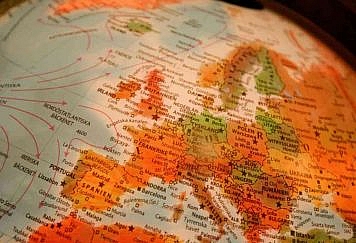The world runs on supply chains. You get your technology imported from China, spices and finished goods from India, minerals from Africa, coffee from Latin America, and the list goes on. We heard about the immense impact of global shipping routes and supply chains when the cargo ship was Ever given was stuck in the Suez Canal. It’s not an exaggeration to say that supply chains are the nerves of the global economy.
However, unless you are an inside person or have someone close to you working in the industry, it’s hard to know how it works and what are the factors involved. Modern-day shipping uses advanced technology to make sure it runs uninterruptedly and keeps the world moving. GPS is easily one of the most efficient and highly effective tools to have integrated into the global supply chain network.
The Basics
As we know, GPS is used to detect location. When you attach a GPS tracker to a shipment or cargo, you get to know the exact location of that shipment at any given point in time. This allows businesses to plan and run their operation more efficiently.
GPS trackers can help the stakeholders to reduce inefficiencies in the network by identifying redundancies and creating a more nuanced and fine-tuned system from previous data. These days, GPS trackers have a travel history feature that shows where it has been for a set amount of time. This means businesses can learn about the whereabouts of the tracker, and thereby the shipment/cargo, not just with the live location but also from before.
GPS trackers are also highly effective in reducing loss. Since you always have the location data of the asset, you can easily track and retrieve lost items without any hassle. It’s also an added safety feature that GPS trackers bring to the table.
In The Later Stages Of The Supply Chain
GPS trackers are most effective and highly relied upon during the last leg of the supply chain, i.e., the warehousing and delivery. The scope of error when shipping a huge amount of anything together in a large cargo ship is daily low. The volume itself reduces most of the inefficiencies and there are systems in place to track and secure them. However, when they are split up and loaded onto trucks or if they are getting delivered, the operations become much more scattered and complex. Suddenly there are many moving factors involved like the route, driver, the vehicle, timing, etc.
Supply chain companies also have the fuel prices, the servicing of vehicles, the runtime and remuneration of the personnel, and several other crucial financial aspects to consider. However, with the increased use of GPS trackers, most of those extra costs and wastages are being cut down. Here are the key areas where GPS trackers help supply chain companies reduce operating costs and run more efficiently.
-
Fleet Management
It’s hard to keep track of several vehicles on route at the same time. Modern-day GPS trackers can be easily installed on every vehicle, and they let you keep track of all vehicles all the time. This allows you to gather important info regarding how far each vehicle travel, which routes are they taking, the speed of the vehicle, number of stops, hours of runtime and downtime, etc. all these data are of immense value for a supply chain company, especially when we consider the immense amount of money and resources it can save.
-
-
Resource Optimization
The GPS tracker data is highly beneficial in figuring out which point in the supply chain needs the most attention. While moving assets from one place to another, it’s easier to keep track of individual assets and learn which areas have the most demands or which areas don’t require too many resources to be allocated.
-
Driver Safety and Performance
GPS trackers are also useful in ensuring the safety and tracking the performance of the driver/delivery personnel. A GPS tracker with the vehicle or assets provides data on where each delivery person is, which route they’re taking, how long they’ve been traveling, how fast they’re driving, and how much time they’ve spent off the road. You can easily find out where each driver is and make sure they are safe and on the route.
-
-
Reduce Operational Costs And Manage Efficiently
Since GPS is a data-oriented device, it enhances the effectiveness and efficacy of the operation. Because of the instant availability of insightful data from the tracker, the drivers or management can focus on other crucial matters instead of tracking and keeping tabs manually. This frees up the resources to be utilized for other means that can improve productivity.
Follow TechStrange for more Technology, Business, and Digital Marketing News.





